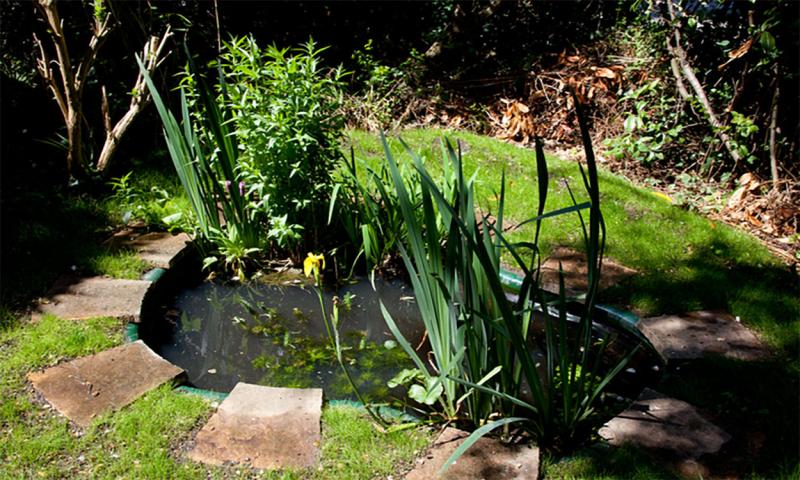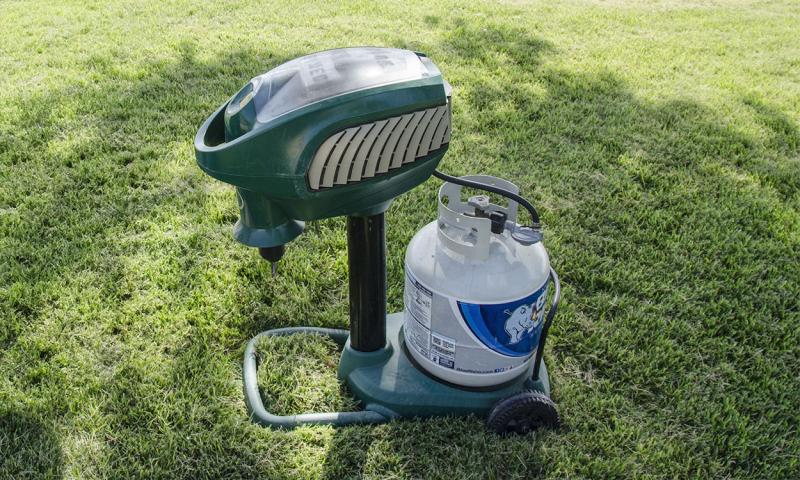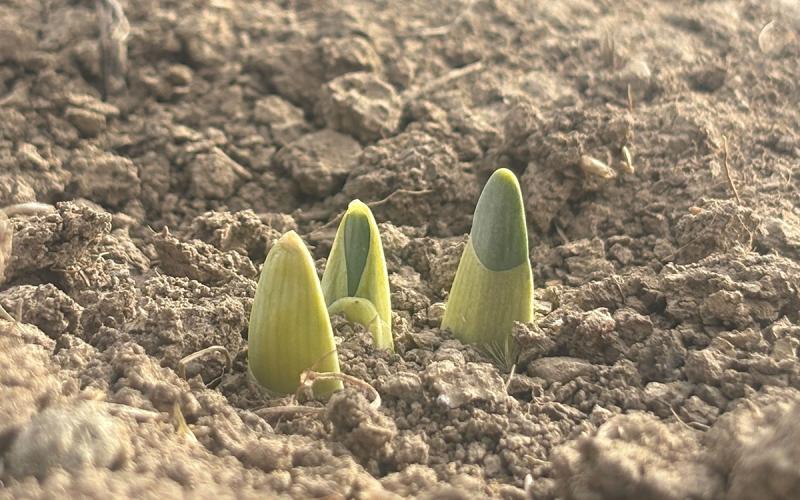Mosquitoes are out in force across much of South Dakota. While there are steps you can take to prevent bites, there are also chemical and non-chemical options available for backyard mosquito control.
Management Options
Standing Water Treatments
Removing standing water is incredibly important to reducing mosquito breeding habitat, but there may be areas of standing water in your yard that cannot be emptied. Water features like fountains, ponds, or rain barrels can be treated with insecticide products containing Bacillus thuringiensis israelensis (Bti).

These water additive granules, donuts, or “dunks” contain cultures of bacteria that are incredibly effective at killing mosquito larvae. Their control lasts approximately 30 days, and they should be reapplied routinely to maintain control throughout the season. When used according to the label, these products are non-toxic to you, your family, your pets, your neighbors, or beneficial insects.
Insecticides
Adulticides (insecticides that kill adult mosquitoes) have limited effect, because the sources of the mosquito population often remain intact. However, if you are planning to host an event outside, there are multiple propane fogging systems that are relatively safe for you, your family, visitors, and pets. Target cool, shaded, moist areas where mosquitoes commonly rest during the day. The duration of control using fogging systems is very limited, but effective control can be assured for the evening. Be sure to keep in mind that environmental conditions, especially wind, can severely reduce the effectiveness of fogging treatments—fog clouds can be blown away from your target areas and adult mosquitoes that were outside of your treatment area can be blown into those areas without consequence. It is also important to realize that the active ingredients in insecticides designed to control mosquitoes (commonly synthetic pyrethrins derived from chrysanthemums, like permethrin, sumithrin, and deltamethrin) are broad spectrum and are extremely toxic to beneficial insects, including pollinators. Do not spray flowers with any products labeled to control mosquitoes.
Traps
You may also consider the various traps that act to be more attractive to mosquitoes than your body. These traps commonly attract mosquitoes using carbon dioxide, a natural compound emitted by mammals and birds (mosquito hosts) during respiration. These products have no detrimental effect on beneficial insects!

Insect Repellent
Using an insect repellent with a scientifically proven active ingredient is one of the most-important things you can do to reduce mosquito (and other insect) bites. Many people are familiar with the active ingredient DEET. DEET is highly effective, but there are other options, including picaridin, oil of lemon and eucalyptus, and IR3535. Although repellents will not reduce the mosquito population, they will keep those pesky biters off your body without harming the environment or beneficial insects! Citronella candles or oils (common for tiki torches) and citronella, citrus, and neem oil sprays are naturally derived products that offer various levels of ranged protection.
In Summary
Combining control practices (larvicide, adulticide, trapping, and repelling) will provide the most thorough levels of protection. Be sure to read and understand label instructions prior to purchasing any pesticide product to ensure the product meets your needs and abilities. Always follow all label instructions for any pesticide products you may use.
Please contact Amanda Bachmann or Stephen Robertson for additional information.


